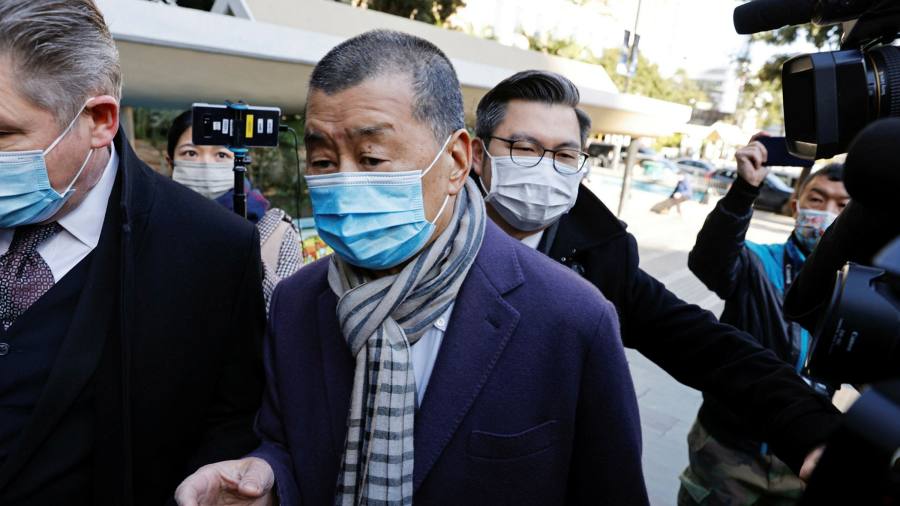[ad_1]
For businesses and investors in Hong Kong, how much is too much?
First there was an extradition bill that, if passed as planned in 2019, would have allowed Hong Kong residents to be extradited to China if they are wanted on certain charges there, including offences related to economic and financial crimes.
While the controversial changes to Hong Kong’s Fugitive Offenders Ordinance were ultimately withdrawn in the face of massive street protests, a year later the Chinese government unilaterally imposed a national security law on the supposedly autonomous territory.
In the event of any conflict between the national security law and freedoms guaranteed by Hong Kong’s mini-constitution, or Basic Law, the former prevails.
The national security law’s defenders argued that it would change little for Hong Kong’s business community. So long as you did not lob Molotov cocktails at the police, lobby foreign governments to impose sanctions on China for its alleged repression in Hong Kong and so on, they argued, you had nothing to fear from it. As one recent pro-Beijing business figure recently told me: “I’m going to be fine because I’m not going to violate the national security law.â€
That might be more difficult than the executive imagines, as recent events have shown that Beijing is determined to apply the law very broadly.
Forty-seven people now face long prison terms on the grounds they wanted to run for seats in Hong Kong’s next Legislative Council elections, secure a majority of the chamber, and then allegedly use that power to force the resignation of Carrie Lam, the territory’s deeply unpopular chief executive.
Under Hong Kong’s national security law, prosecutors now contend such tactics are tantamount to subversion, punishable by up to life in prison.
Aside from Jimmy Lai, the self-made billionaire publisher now in prison pending his own national security law trial for allegedly “colluding†with foreign powers, no high-profile business figure has been willing to support Hong Kong’s pro-democracy movement openly. In private, however, some think Beijing’s crackdown has gone too far, and are moderating their business and investment decisions accordingly.
“Everything in Hong Kong is political now,†says one executive, adding that “we started moving assets offshore when the extradition bill was proposedâ€.
Such sceptics do not necessarily advocate the wholesale liquidation of high-yielding property and other assets in Hong Kong, but some are moving more of the profits generated from them to Singapore and other places beyond Beijing’s reach.
Some have also stopped repatriating profits from overseas operations and investments back to the territory. “Everything we make overseas stays overseas,†the executive adds.
Some Hong Kong executives and lawyers are also concerned about proposed changes to the territory’s immigration law.
The government says that the amendments will simply give Hong Kong’s immigration director the power to ban individuals from boarding inbound flights and ships, and is only aimed at asylum seekers in accordance with international legal conventions. The local bar association and others counter that the proposed changes remain too vaguely worded, potentially giving the immigration director power to unilaterally prevent people from leaving Hong Kong as well.
Exit bans are frequently slapped on business people and others in China proper, sometimes trapping them in the country for years on end. In Hong Kong, however, this would contravene the Basic Law’s guarantee that “unless restrained by law†— such as court-ordered bail conditions — “holders of valid travel documents shall be free to leave [Hong Kong] without special authorisationâ€.
David Webb, an investor rights activist and government critic, argues that the government’s assurance about its intent matters little at a time when the Basic Law “is in tatters reallyâ€. “Whenever they feel the need to do something that the Basic Law appears to deny they say, well, it is subject to exceptions,†he adds.
The final wording of the amended immigration law will provide an early test of whether Beijing’s crackdown — which has so far mainly affected Basic Law protections related to civil liberties, local elections and other ostensibly “political†issues — is about to spill into the economic and financial realm as well.
tom.mitchell@ft.com
[ad_2]
Source link





